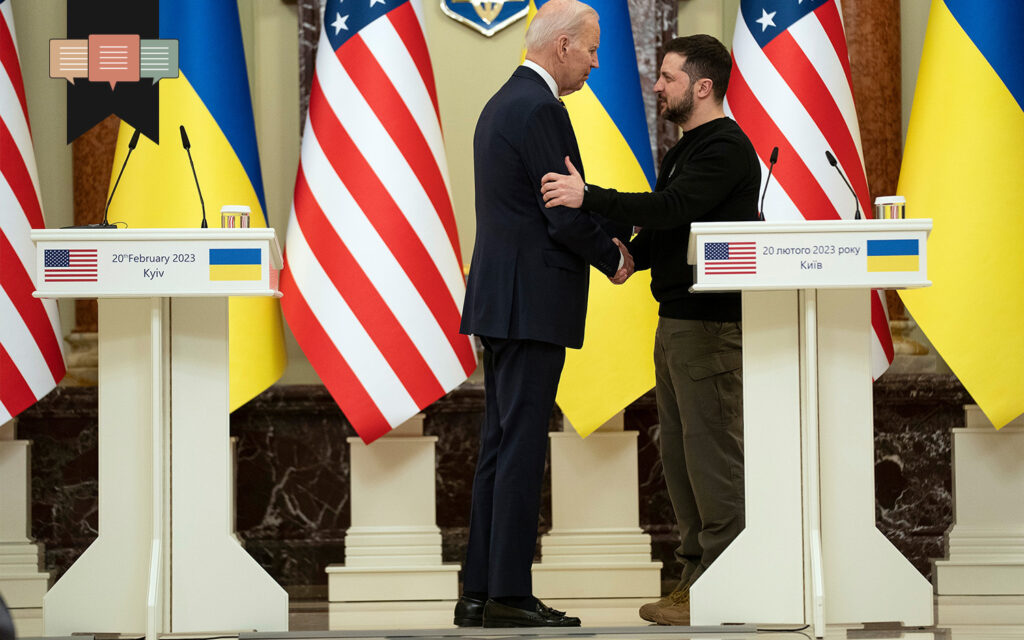
Published April 13, 2023
Western leaders marked the one-year anniversary of Putin’s invasion of Ukraine with a series of rousing denunciations of Russian aggression and enthusiastic assertions of solidarity with the Ukrainians’ fight for freedom and democracy. President Biden took the extraordinary step of journeying in person to Kyiv and giving a speech alongside Ukrainian President Volodymyr Zelensky. A couple of days later, the United Nations General Assembly enacted a formal resolution censuring Russian aggression and repeating “its demand that the Russian Federation immediately, completely and unconditionally withdraw all of its military forces from the territory of Ukraine within its internationally recognized borders.”
All of this comes on the heels of two months of dramatic ramp-ups in Western military aid for Ukraine, as several countries, including the United States, have agreed to supply advanced tanks to the Ukrainian army after previously declining to do so, and have even begun to toy with the idea of supplying fighter jets. These developments, it might seem, should warm the hearts of any Christians passionate about justice, for surely Ukraine’s cause is just. There is more, however, to traditional just war theory than “just cause” alone.
Please continue reading on the WORLD Opinions website.
Brad Littlejohn, Ph.D., is a Fellow in EPPC’s Evangelicals in Civic Life Program, where his work focuses on helping public leaders understand the intellectual and historical foundations of our current breakdown of public trust, social cohesion, and sound governance. His research investigates shifting understandings of the nature of freedom and authority, and how a more full-orbed conception of freedom, rooted in the Christian tradition, can inform policy that respects both the dignity of the individual and the urgency of the common good. He also serves as President of the Davenant Institute.
Brad Littlejohn, Ph.D., is a Fellow in EPPC’s Evangelicals in Civic Life Program, where his work focuses on helping public leaders understand the intellectual and historical foundations of our current breakdown of public trust, social cohesion, and sound governance. His research investigates shifting understandings of the nature of freedom and authority, and how a more full-orbed conception of freedom, rooted in the Christian tradition, can inform policy that respects both the dignity of the individual and the urgency of the common good. He also serves as President of the Davenant Institute.










